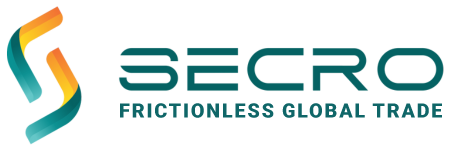Insights That Shape Global Trade Today and Tomorrow
Stay informed with expert analysis, product updates, and trends driving the digital transformation of global trade

Overview This whitepaper suggests how the security capabilities of Secro’s tokenized e-bill of lading (eBL) can be used to reduce the banks’ commodity trade finance portfolio risk, thus helping to better comply with Basel IV requirements. The chart below provides a comparison between the risk associated...

In trade commodity finance, different approaches to lending are influenced significantly by the type of warehouse receipt provided. Here’s how these approaches differ and why tokenized eWarehouse receipts offer a substantial advantage: Scanned Copy of Warehouse Receipt: In this scenario, the borrower...

2014 BIMCO eBL clause does no longer seem to fit current market and increasingly prevents eBL digitalization rather than facilitates it. 2014 BIMCO Clause assumes simple Charterers’ option to request Owners to accept eBL against (outdated indemnity) that may be hard to accept by an Owner being...

Shippers and Consignees should create an account on Secro’s eBL (electronic Bill of Lading) platform to ensure the legal validity and efficiency of the eBL process. To issue a legal eBL, all parties named in it, including Shippers, Consignees, and Carriers, must be verified customers of Secro eBL...

Secro has developed a robust technology that ensures full interoperability with mainstream blockchain frameworks. This capability would allow Secro to seamlessly integrate with any blockchain-based electronic Bill of Lading (eBL) provider. Secro’s strategic initiatives and partnerships highlight...

